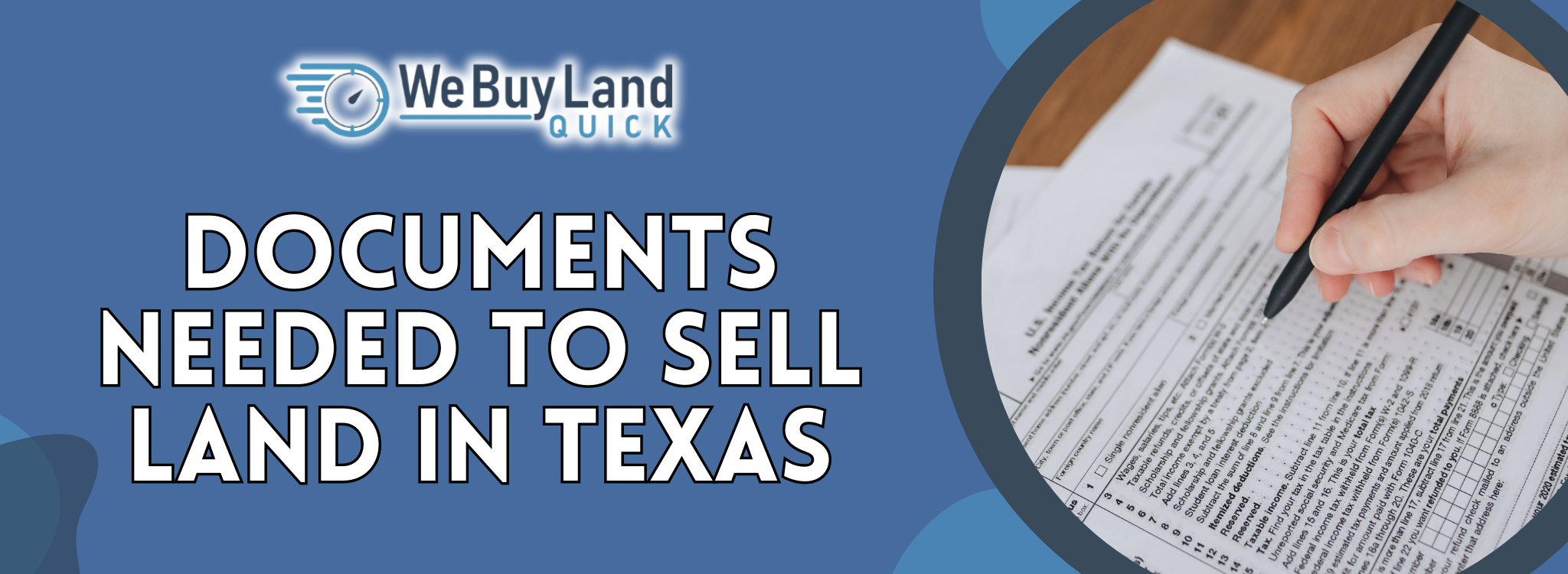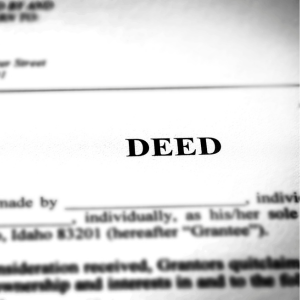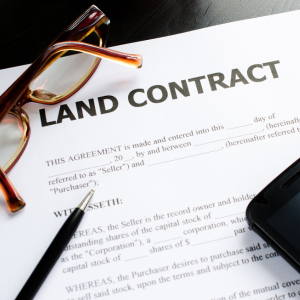
What Are the Steps in the Land Selling Process in Texas?
Selling land in Texas involves a series of steps to ensure a smooth transaction. Knowing the land-selling process is beneficial whether you are a first-time or experienced property owner. Here are the main steps:
- Evaluate Market Conditions: Before listing your land, check current market conditions in Texas, including local land values and demand.
- Prepare Your Land: Make necessary improvements to make your land more attractive. Ensure it’s accessible and visually appealing to buyers.
- Hire a Real Estate Professional: A real estate professional specializing in land sales can offer valuable advice and marketing skills.
- Set a Competitive Price: With help from your expert, decide on a competitive listing price by comparing similar land sales in your area.
- Market Your Property: To effectively market land for sale, create engaging listings with high-quality photos and descriptions. Utilize online platforms and real estate networks to reach potential buyers.
- Negotiate Offers: Review them carefully with your expert when offers come in. You may need to negotiate to reach agreeable terms.
- Close the Sale: After agreeing on sale terms, complete the closing process, which includes legal paperwork and ownership transfer.
How Can I Prepare My Land for Sale?

Proper preparation is key to a successful land sale in Texas. Here are some steps to get your property ready:
- Evaluate Property Condition: Check the land’s condition, noting any debris or overgrowth that needs clearing.
- Consult a Real Estate Professional: Work with an expert to meet Texas land sale requirements and comply with regulations.
- Enhance Curb Appeal: Simple efforts like clearing pathways and marking boundaries can make your land more inviting.
- Sale Readiness: Gather all relevant documents related to land ownership and any previous improvements made.
What Legal Aspects Should I Be Aware Of?
When selling land in Texas, you must understand the legal aspects involved:
- Zoning Laws: Know the zoning regulations for your property as they determine its permitted use.
- Property Boundaries: Confirm the exact boundaries of your property, often requiring an official survey.
- Ownership Verification: Ensure clear ownership and resolve issues with liens or claims before selling.
Which Key Documents Are Essential for Selling Land in Texas?
Certain documents are crucial when selling land in Texas:
- Deed: A deed proves ownership and must be transferred to the buyer at sale completion.
- Title Report: This report confirms clear ownership and lists any liens or encumbrances to address before selling.
- Survey and Topographical Map: Surveys define property boundaries, and topographical maps show landscape features.
Do I Need a Survey or Topographical Map?
A land survey and topographical map are important for several reasons:
- Property Boundaries: Accurate surveys confirm legal boundaries and prevent future disputes.
- Topographical Mapping: Provides details on elevation and land features, helping assess property potential.
- Document Review: Reviewing these maps identifies physical encroachments or access issues that could impact the sale.
Why Is the Title Important?

The title plays a vital role in the land sale process:
- Clear Ownership: A clear title verifies the seller’s ownership rights.
- Liens and Claims: Resolve any outstanding liens or claims to avoid complications during the sale.
- Title Confirmation: Ensures all parties involved trust the legality and fairness of the transaction.
For further assistance with selling land efficiently, consider consulting professionals who specialize in streamlining this process.
How Does an Appraisal Impact the Sale of Land in Texas?
A real estate appraisal is essential for assessing the fair market value of land in Texas. It affects how you set your price strategy and significantly impacts the sales process. Understanding how a land appraisal affects property value assessment enables sellers to set competitive prices.
What Is the Role of a Real Estate Appraisal?
The primary purpose of a real estate appraisal is to provide an unbiased assessment of a property’s fair market worth. This assessment assists sellers in selecting the appropriate price approach, ensuring that the land’s worth corresponds to current market conditions. A complete land appraisal considers elements such as location, size, and possible use, which are crucial for accurately determining property value.
How Can I Choose a Qualified Appraiser?
Selecting a qualified appraiser is important for getting an accurate appraisal. Here’s how to do it:
- Credentials: Check the appraiser’s certification and licensing in Texas.
- Recommendations and Reviews: Get advice from trusted sources and read reviews.
- Experience: Choose a Texas real estate appraiser with experience in land appraisal.
- Appraisal Certification: Ensure the appraiser has relevant certifications and meets industry standards.
What Taxes Must Be Considered When Selling Land?
When you sell land, you need to think about several taxes:
- Property Taxes: Know the current dues and any assessments affecting the land.
- Tax Implications: Understand how selling might affect your tax liabilities.
- Texas Property Tax Clearance: Clear all outstanding taxes before the sale.
- Tax Assessment Statement Texas: Get the latest assessment statement to understand tax calculations.
How Do Property Taxes Affect the Sale?

Property taxes can greatly impact the sale of land:
- Tax Implications: High taxes may deter buyers or influence their offers.
- Current Dues and Assessments: Keep all taxes up-to-date to avoid issues.
- Texas Property Tax Clearance: A clear tax record smoother the sale process.
- Tax Liabilities: Talk about potential tax liabilities with a professional to avoid surprises after the sale.
What Should Be Included in a Contract to Sell Land?
When crafting a contract for a deed in Texas, ensure it includes key elements to ensure the deal is legal and covers all bases. Here’s what to include:
- Sales Disclosure Document: In Texas, this outlines crucial details about the land, like known defects.
- Seller Financing Documents: If seller financing is an option, clearly state the terms, interest rates, and repayment plan.
- Land Sale Requirements: Fulfill all Texas land sale requirements, including any needed approvals and permits.
- Property Deed Transfer: Specify how the property deed will be transferred to the buyer after the sale.
These components help create a smooth and legal transaction.
How Do I Draft a Comprehensive Sales Agreement?
Creating a Texas land sales contract involves several steps. Use this guide:
- Proof of Ownership: Confirm you own the Texas land with proper title documents.
- Seller’s Affidavit: Prepare this to verify details of the land and sale terms.
- Texas Real Estate Commission Form: Use the official forms to standardize the transaction.
- Seller’s Checklist: Have a checklist to cover all legal steps, from title checks to closing.
Following these steps helps draft a reliable sales agreement.
Are There Standard Clauses to Include?
Adding standard clauses in a Texas land sales contract can prevent disputes. Consider these commonly used clauses:
- Texas General Warranty Deed Clause: Offers assurances about the property’s title.
- Earnest Money Agreement: Secures a deposit, showing the buyer’s commitment and when it is refundable.
- Terms and Conditions: Clearly outline the sale’s terms, including payment, contingencies, and closing.
- Customization of Contracts: While starting with standard clauses, adapt contracts to address specific needs or agreements.
These clauses provide a solid framework for the sales agreement.
What Disclosures Are Necessary in Texas?

In Texas, certain disclosures are required by law to protect buyers. Key disclosures include:
- Seller Disclosure Form: Lists any known major issues with the property.
- Environmental Assessment Report: Details any environmental concerns affecting the land.
- Flood Zone Disclosure: Indicates if the land is in a flood zone, affecting insurance and use.
- Mineral Rights Document: Clarifies if mineral rights come with the property.
- Past Usage: Shares historical data on the land’s prior uses that might influence plans.
These disclosures ensure buyers have all the necessary information to make wise decisions.
What Information Must Be Legally Disclosed?
Beyond basic disclosures, certain legal information must be shared:
- Environmental Concerns and Hazards: Report any environmental risks or issues.
- Historical Data: Provide records about past structures or events on the land.
- Texas Property Appraisal: Offer recent appraisals to show the land’s value.
- HOA Documents: If applicable, include homeowners association rules and fees.
- Land Zoning Verification: Verify zoning classifications and allowed uses with official documents.
Giving this information protects both seller and buyer and meets Texas property laws.
What Happens During the Closing Process in Texas?

The closing procedure in Texas is a critical phase in real estate transactions. It entails a series of steps to legally transfer property ownership from the seller to the buyer. Understanding these stages helps prevent surprises.
Who Needs to Be Present at Closing?
At the closing, several key people need to be there:
- Buyer and Seller: The main parties will sign documents and finalize the deal.
- Notary: A notary public witnesses and notarizes key documents, including the warranty deed in Texas.
- Real Estate Attorneys: Legal experts provide advice and ensure compliance with state laws.
- Other Parties: Lenders or escrow experts might also attend, depending on the transaction.
What Final Steps Must Be Completed?
The final steps in closing fulfill legal and financial duties:
- Signing of Deeds and Transfer Documents: All essential paperwork, like the warranty deed, must be signed and notarized.
- Verification of Funds: Confirming the buyer has enough funds to complete the purchase is crucial.
- Payment Transfers: This step includes paying any remaining balance and covering closing costs.
- Property Deed Transfer: Local authorities in Texas officially transfer the deed to the new owner.
- Mortgage Payoff Statement: To ensure a clear title transfer, existing mortgages must be paid off.
How Can I Ensure a Smooth Transfer of Ownership?

A smooth ownership transfer requires careful preparation.
What Documentation Is Required at Closing?
Having all necessary paperwork ready avoids delays:
- Deed: This legal document transfers property ownership.
- Acknowledgment of Receipt: Confirms the buyer received all important documents.
- Handling Recordation: Ensures proper recording of the deed with local authorities in Texas.
- Texas Land Sales Contract: Outlines terms agreed upon by both parties.
- Survey of Property Boundaries: Confirms no discrepancies exist in property lines.
How to Address Any Last-Minute Issues?
Proactively handling potential issues saves time:
- Disputes and Discrepancies: Resolve property or contract conflicts with a Texas real estate attorney.
- Ensuring All Parties Agree on Terms: Clarify any ambiguities in the contract.
- Seller’s Affidavit: Certifies no liens or other claims against the property.
Are There Alternatives to Traditional Land Selling?
Traditional methods of selling land may not always be suitable for your purposes. Exploring multiple choices can help you market more effectively.
Can I Use a Real Estate Professional to Assist in the Sale?

A real estate professional can offer expert representation to make selling land easier. Experts know local market trends and can assist you in setting realistic pricing expectations. Be careful of commission structures, which typically charge a portion of the sale price. Their negotiating skills and access to a larger audience frequently compensate for this investment.
Is Selling for Cash a Viable Option?
Selling land for cash is popular since it is simple and quick. Cash offers can avoid lengthy financing stages, resulting in faster closings. When analyzing offers, seek professional guidance to ensure they are priced moderately. To determine whether a cash offer is viable, compare it to current market circumstances and recent sales.
What Are Common Mistakes to Avoid When Selling Land in Texas?
Selling land necessitates careful planning and prudent decisions. Avoiding frequent mistakes can result in better deals.
How Can I Prevent Pricing Errors?
Pricing issues can reduce your prospects of selling land. Conduct detailed research on comparable sales to establish appropriate price expectations. To further understand market trends, consider recent sales of similar properties in the area. If your property is priced wrong, it may dissuade buyers or take longer to sell.
Why Is Proper Marketing Important?
Proper marketing is essential for attracting the proper buyers. Without excellent listings, your property may be missed. Use digital tools to reach a big audience while emphasizing your property’s unique attributes. A practical marketing approach improves visibility and generates interest from prospective purchasers.
Explore related articles on our website to gain more insight into land-selling tactics. Making informed selections, whether working with a real estate professional or considering cash bids, can help transactions run smoothly. Remember these guidelines to avoid frequent blunders and successfully sell land in Texas.
FAQs:
What Documents Are Needed To Sell Land In Texas?
When selling land in Texas, you’ll generally need these documents:
- Deed: Shows proof of ownership.
- Sales Contract: Agreement between buyer and seller.
- Title Insurance Policy: Protects against title defects.
- Texas Resale Certificate: If required.
- Plat Map: Details about the land area.
Are There Specific Documents Required To Sell Land In Austin Or Dallas?
Yes, as with the rest of Texas, you’ll need essential documents like a deed and sales contract for Austin and Dallas. Local rules may require extra paperwork related to zoning or land use. Consult a local expert to be sure.
How Do The Land Sale Requirements Differ In Houston Or San Antonio?
In Houston and San Antonio, while the core documents, such as the deed and sales contract, remain the same, there might be extra needs like utility easements or city permits. It’s best to check with local authorities for details.
What Is A Texas Land Trust Document?
A Texas land trust document sets up a trust that holds the land title. This helps manage multiple ownership interests and offers privacy for owners.
Do I Need A Mineral Lease Release In Texas When Selling Land?
If there are existing mineral rights or leases on your property, a mineral lease release might be needed to clear any claims before the sale. This ensures the new owner doesn’t get unwanted agreements.
Is Title Insurance Important In A Texas Land Sale?
Yes, title insurance is crucial. It protects both buyer and seller from unseen title defects or liens. It gives peace of mind against unexpected legal issues regarding ownership.
What Forms Are Necessary For Terminating Joint Ownership In Texas?
To end joint ownership, you usually need a partition agreement or something similar. It’s important to ensure that all parties agree to the terms and that the split is legal under Texas law.
Are There Any Specific Regulations For Selling Vacant Land In Texas?
Yes, selling vacant land might require extra disclosures, such as any land use restrictions or environmental checks. Be aware of these responsibilities to ensure a smooth transaction.
Key Insights
- Selling land in Austin, Dallas, Houston, and San Antonio requires knowing local guidelines and rules.
- Before selling, make sure you follow all land use regulations in Texas and check that the land is zoned for its intended purpose.
- Gather necessary forms, such as affidavits of heirship, deeds of trust, and title insurance documents, for a vacant land sale.
- Be familiar with Texas policies and procedures for land transactions to ensure compliance and smooth processing.
- Review or draft utility easement and boundary line agreements if they are relevant to the land.
- If needed, get a plat map and see if a mineral lease release is required for the land being sold.
- Verify or secure a Texas homestead exemption waiver if the property was previously a homestead to avoid tax issues.
- Prepare any mortgage payoff statements related to the land before finalizing the sale.
- Consult the Texas land registry form for accurate record-keeping and assess if terminating joint ownership is required.
- Look into historical claims like a Texas land patent if the property’s history requires it.
Want to sell your land in Texas? We’re here to help! Whether you’re in Houston, San Antonio, Dallas, Austin, Fort Worth, El Paso, or any surrounding area, we make the process simple and hassle-free. We buy land across Texas and can guide you through every step of selling your property. Read on to learn more about how to sell land in Texas, and if you need expert assistance, don’t hesitate to Contact Us at (469) 529-7977.


